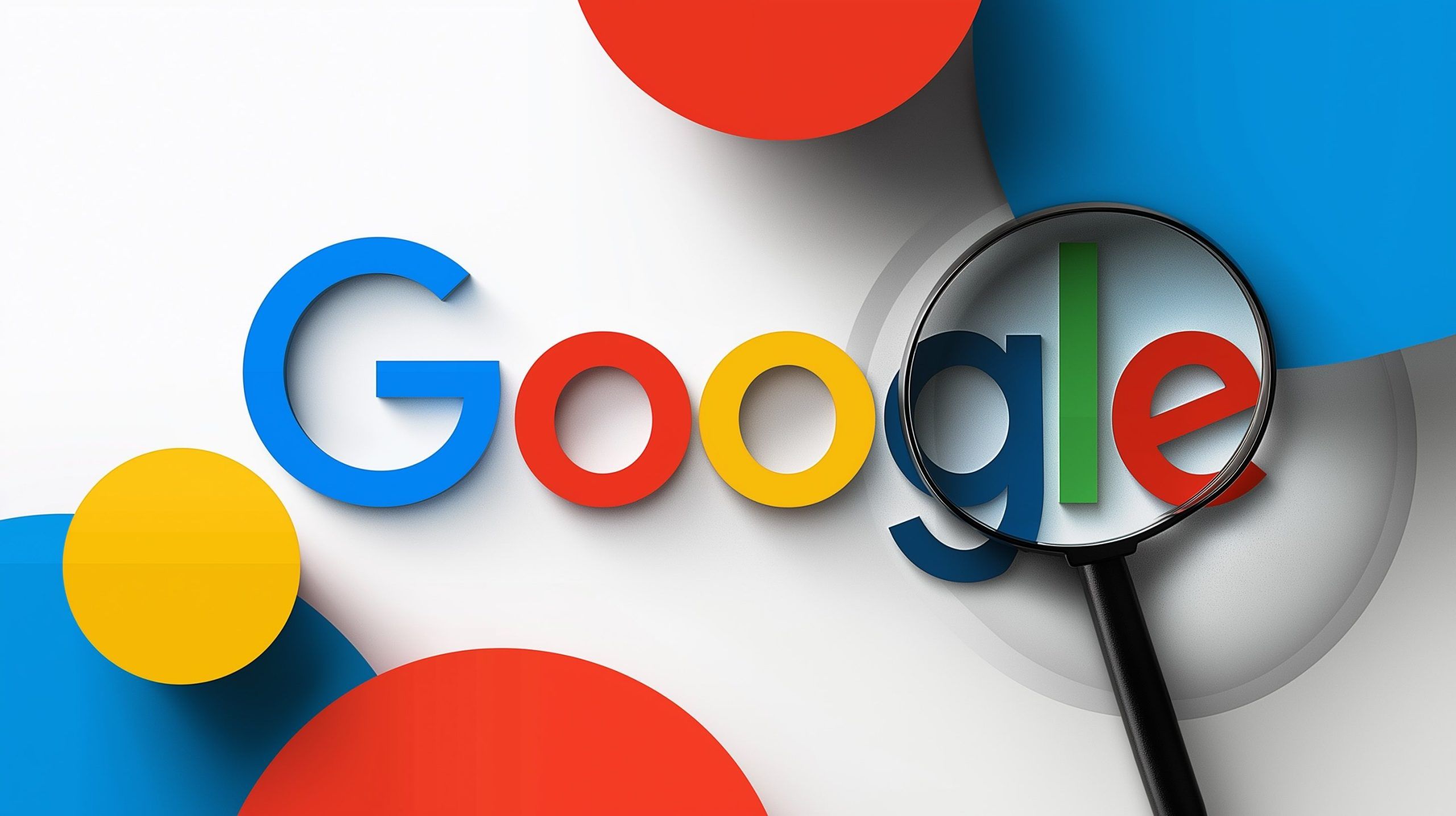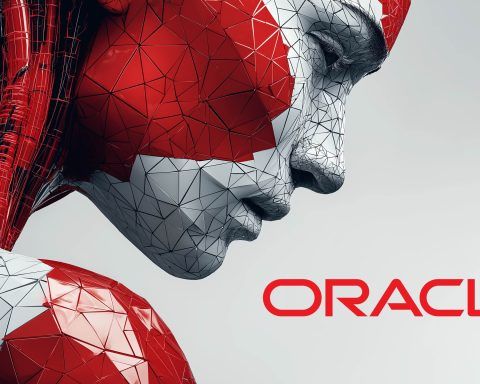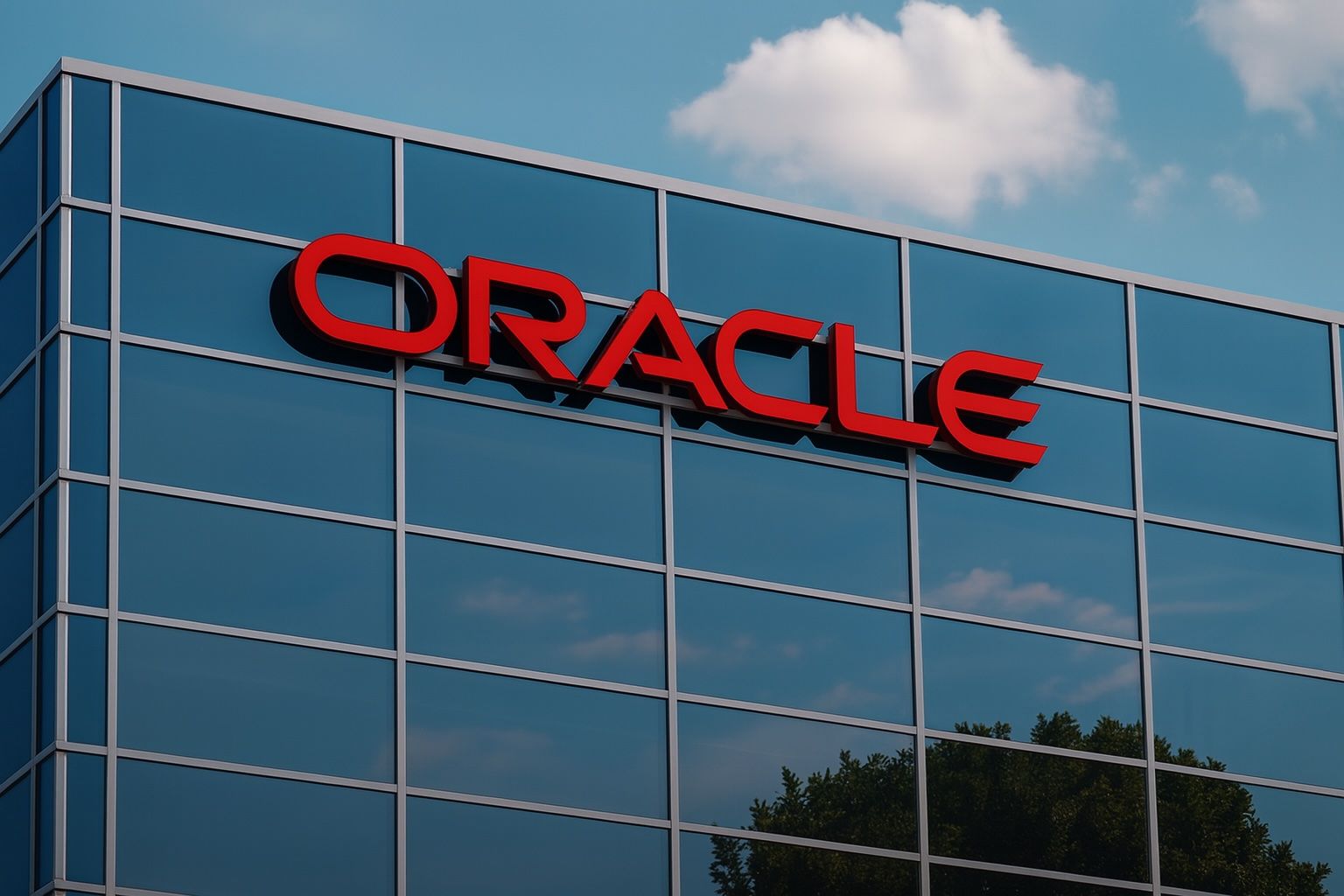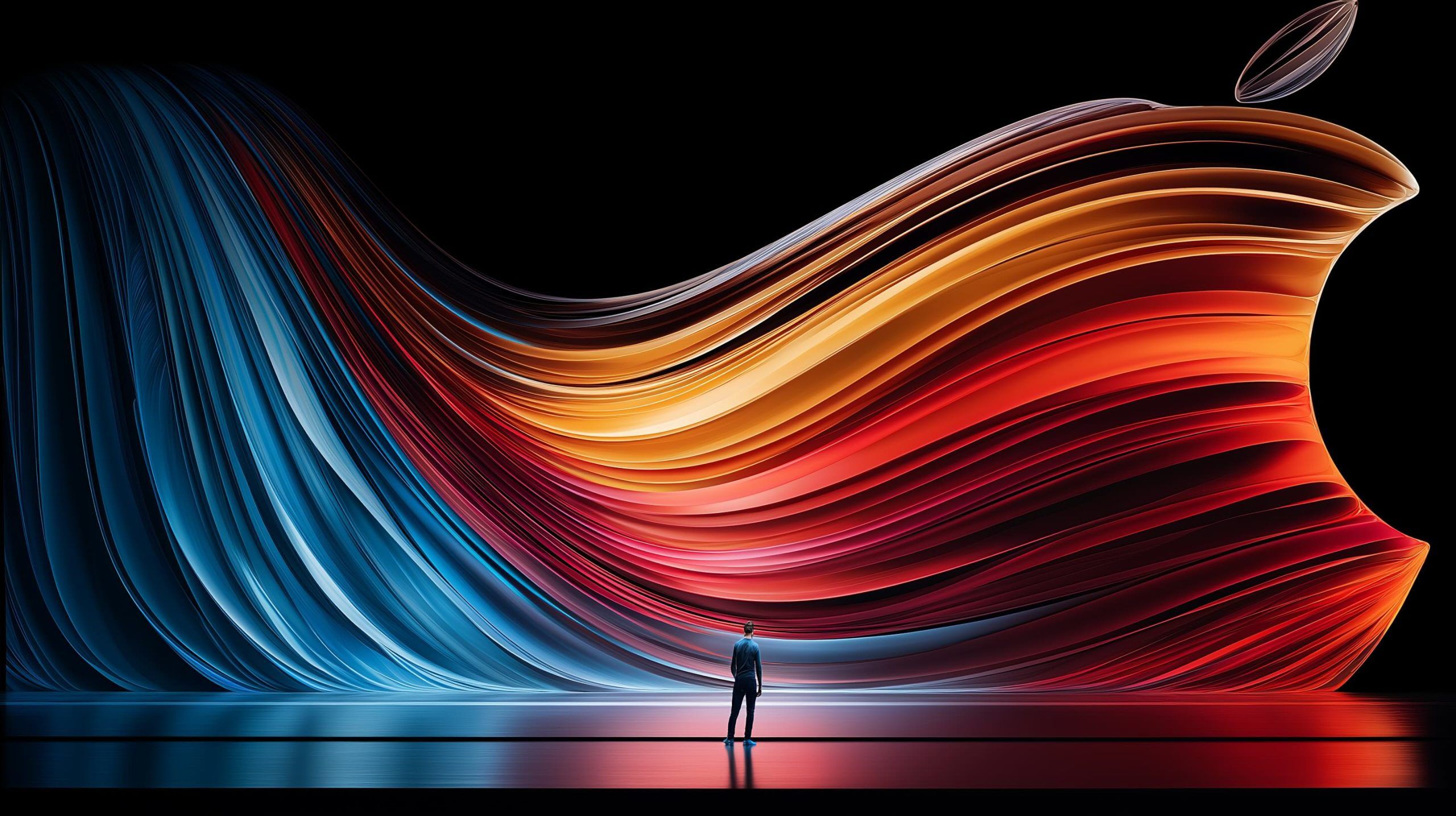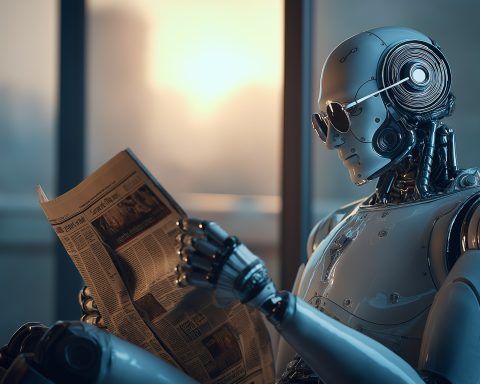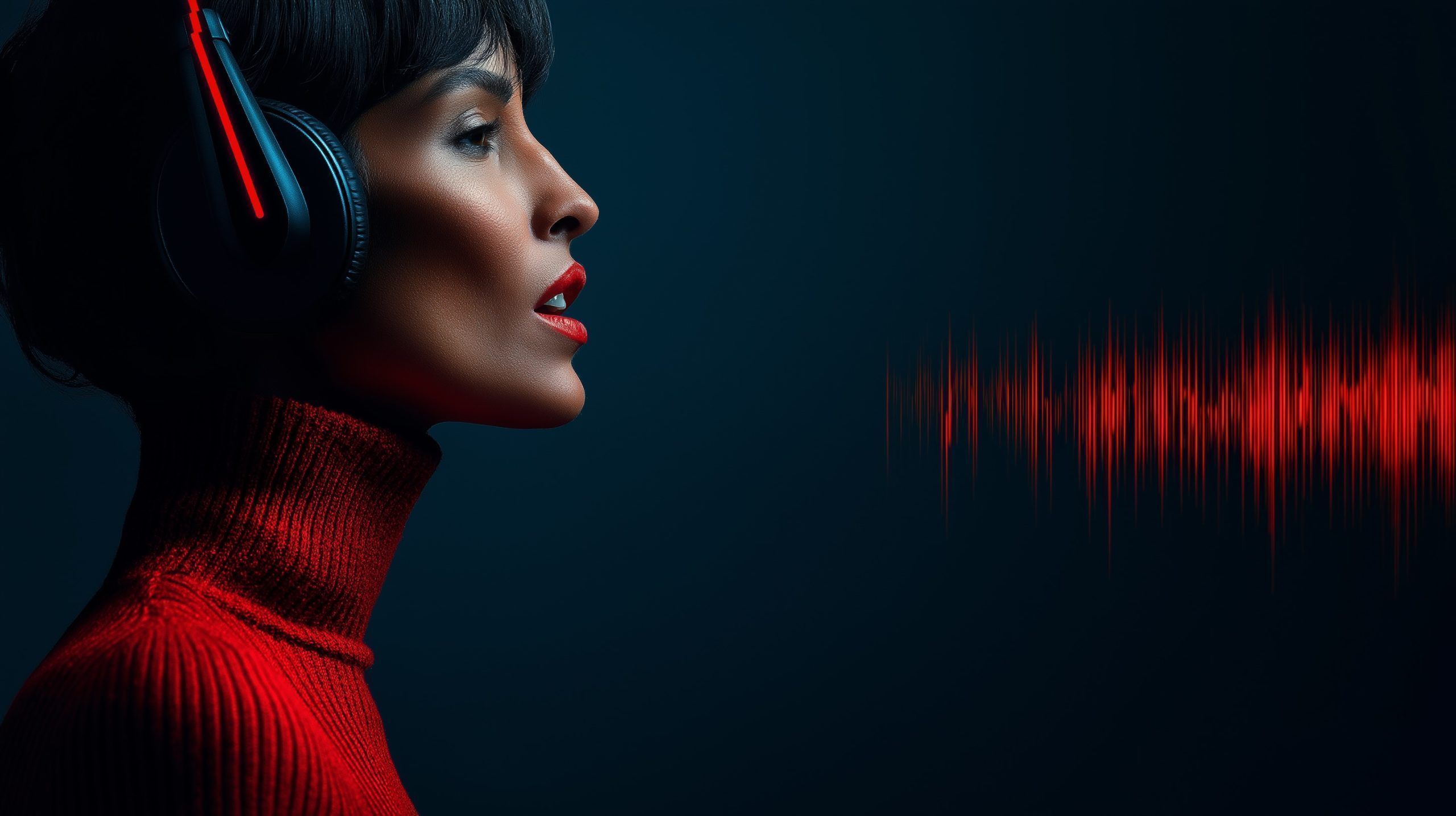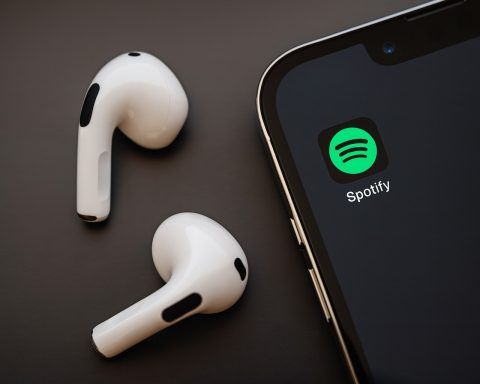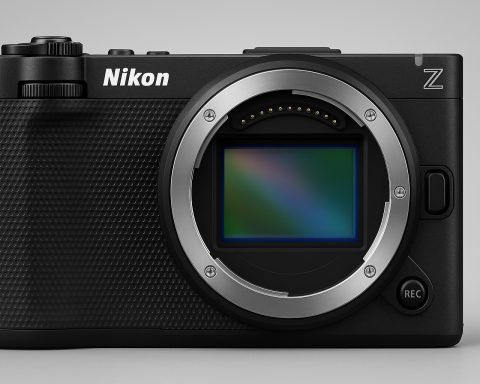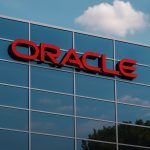- Rolling Stone’s owner sues Google: Penske Media Corporation (parent of Rolling Stone, Billboard, Variety, and more) filed a lawsuit against Google in September 2025, accusing the tech giant of using its journalism without consent to generate AI-powered search summaries axios.com reuters.com. The suit claims Google’s new AI “overview” feature lifts content from Penske’s articles, giving answers directly on Google and diverting traffic away from publishers’ websites axios.com reuters.com.
- First major publisher challenge: This marks the first time a major U.S. publisher has taken Google to court over generative AI in search axios.com reuters.com. Penske alleges Google’s dominance in search lets it force publishers into a “deal” linking search visibility to use of their content for AI summaries reuters.com. The complaint frames this as an antitrust issue – notably, no direct copyright claim was made chatgptiseatingtheworld.com chatgptiseatingtheworld.com.
- Traffic and revenue at stake: Penske says roughly 20% of Google searches that would normally link to its sites now display AI summaries, a share expected to grow axios.com. It blames these one-stop answers for a one-third drop in affiliate revenue since peak levels, citing a steep decline in referral traffic by end of 2024 axios.com. The lawsuit warns that if Google’s practices go unchecked, they could “destroy the business model that supports independent journalism”, undermining the quality and quantity of information online axios.com.
- Google fights back: Google denies any wrongdoing and says its AI features benefit users and publishers. “With AI Overviews, people find Search more helpful and use it more, creating new opportunities for content to be discovered,” Google spokesperson José Castañeda responded, calling the claims “meritless” axios.com. Google argues these AI summaries actually send traffic to a wider variety of sites and notes it still delivers “billions of clicks” to websites daily axios.com. The company has vowed to defend against the lawsuit vigorously axios.com.
- Part of a wider AI copyright war: Penske’s suit comes amid a wave of legal battles over generative AI. The New York Times is suing OpenAI (and its partner Microsoft) for allegedly using millions of its news articles to train ChatGPT without permission reuters.com. Dozens of major publishers – from Condé Nast and The Guardian to Politico – jointly filed a lawsuit against AI startup Cohere in early 2025 for “massive, systematic” copyright infringement of their content betakit.com betakit.com. Even educational firm Chegg sued Google in February 2025, claiming AI-generated answers in search were eroding demand for its study materials and unfairly undercutting original content reuters.com.
- Experts see high stakes: Industry and legal experts say these cases could redefine how copyright law applies to AI – and the outcome will ripple across tech and media. Publishers argue AI companies should pay for the content that powers their models, while tech firms invoke fair use and innovation. Some AI firms have begun striking licensing deals under pressure: for example, Anthropic (maker of the Claude chatbot) recently agreed to pay at least $1.5 billion to authors and publishers in a record settlement over AI training data axios.com. Courts have started wrestling with these novel issues, and billions in liability (or licensing fees) could hang on how judges interpret fair use in the AI era reuters.com betakit.com.
Summary: Penske Media’s Showdown with Google
Penske Media Corporation (PMC) – the publisher behind iconic titles like Rolling Stone, Billboard, Variety, and The Hollywood Reporter – has launched a landmark legal challenge against Google over the way Google’s generative AI search features use news content axios.com reuters.com. Filed in September 2025 in U.S. federal court (Washington, D.C.), the lawsuit alleges that Google improperly scrapes and summarizes PMC’s journalism to generate AI “Search Overviews” – those new AI-generated answer boxes at the top of some Google results axios.com axios.com. According to PMC, Google’s AI is effectively republishing the substance of its articles without permission, satisfying users’ queries on Google’s page so that fewer people click through to the actual news sites axios.com axios.com.
“As a leading global publisher, we have a duty to protect PMC’s best-in-class journalists and award-winning journalism as a source of truth,” said Jay Penske, PMC’s chairman and CEO, calling Google’s actions a threat to the integrity and future of digital media axios.com. In the complaint, PMC argues Google has abused its dominance in search: “As a condition of indexing [publishers’] content for search, Google now requires publishers to also supply that content for other uses that cannibalize or preempt search referrals,” the suit states chatgptiseatingtheworld.com reuters.com. In other words, PMC claims Google ties a site’s visibility in search results to whether Google can use that site’s content in AI summaries – a take-it-or-leave-it deal that publishers do not willingly consent to reuters.com. Without Google’s near-90% search market share, publishers could refuse and demand compensation for use of their work, the suit notes reuters.com. But under today’s circumstances, PMC says, Google is leveraging its monopoly power to avoid paying for content that fuels its AI features reuters.com.
No straightforward copyright claim appears in PMC’s lawsuit. Instead, PMC is pursuing antitrust and unfair competition angles chatgptiseatingtheworld.com. The complaint paints Google’s behavior as anti-competitive: by siphoning off readers and revenue from news sites, Google is allegedly undermining rivals (publishers) in the information market. It’s a novel approach – treating unauthorized AI use of content as an abuse of monopoly power – likely because direct copyright law around AI is still murky. (Courts have yet to definitively decide if training AI on copyrighted text or summarizing it counts as “fair use.”) By framing Google’s AI summaries as an anti-competitive scheme, PMC aims to tap into antitrust remedies that could force Google to change its practices or even pay damages for harming the news industry axios.com reuters.com. Observers say this is the first major U.S. publisher to challenge Google’s generative AI in search, making it a test case that could set precedent for others axios.com reuters.com.
What PMC is seeking: The lawsuit asks the court for remedies that would stop Google from using publishers’ content in AI results without agreement, and presumably for financial damages to compensate losses. PMC hasn’t disclosed a specific dollar figure publicly, but it emphasizes the steep toll on its business: by the end of 2024, PMC’s affiliate e-commerce revenue (money earned when readers click links in its content to buy products) fell over 33% from its peak, a drop the company squarely blames on declining Google search referrals axios.com. Internal data cited in the suit show that roughly one in five Google searches that would normally lead to a Penske outlet now includes an AI summary on Google’s site axios.com. Those summaries often give enough info – drawn from Penske’s own articles – that the user doesn’t click the link to Rolling Stone or Variety, meaning lost page views for PMC. Less traffic means fewer ad impressions and subscriptions, hitting revenue. The suit calls Google’s AI overview practice an existential threat: “Siphoning and discouraging user traffic to publishers’ websites in this manner will have profoundly harmful effects on the overall quality and quantity of information accessible on the Internet… If unchecked, these anticompetitive practices will destroy the business model that supports independent journalism,” the complaint warns axios.com. In essence, PMC argues that if news outlets can’t get fair compensation or traffic for their work, it undermines journalism itself – a public harm.
Google’s Response and Strategy
Google has flatly denied any wrongdoing and indicated it will fight the Penske lawsuit. A spokesperson for the company, José Castañeda, defended the AI search summaries as a boon for users and content creators, not a bane axios.com. “With AI Overviews, people find Search more helpful and use it more, creating new opportunities for content to be discovered,” Castañeda said in a statement axios.com. Google points out that it still sends billions of clicks to websites every day, arguing that these AI-generated snippets often lead users to a greater diversity of sites than traditional search results would axios.com. In Google’s view, features like Search Generative Experience (SGE) improve user satisfaction – users can get quick answers – while also potentially introducing them to new sources they might not have clicked on before. The company has labeled PMC’s claims “meritless” and said it will “defend against these meritless claims” in court axios.com.
Beyond public statements, what is Google’s broader strategy here? So far, Google has been cautious about striking pay-for-content deals for AI. Unlike some of its peers (OpenAI, for example, which has begun paying certain news publishers for access to their archives), Google has not announced similar comprehensive licensing deals for the data that its AI search tools use. Industry insiders suggest that Google’s immense market power in search gives it little incentive to negotiate individual content licenses – publishers need to be indexed on Google to get traffic, so Google can set the terms reuters.com reuters.com. Danielle Coffey, CEO of the News/Media Alliance (a major news publishers’ association), observed that Google’s dominance lets it play by different rules: “All of the elements being negotiated with every other AI company [don’t] apply to Google because they have the market power to not engage in those [deals],” Coffey told Reuters, referring to licensing talks some AI firms have pursued reuters.com. In other words, smaller AI companies have been paying publishers or offering opt-outs to avoid legal trouble, but Google – sitting atop ~90% of the search market – hasn’t felt the same pressure to opt publishers out or pay for their content reuters.com reuters.com.
Google’s stance is that its AI summaries are transformative and fair: they generate original phrasing (not copy-pasting whole paragraphs), and serve as a jumping-off point with links to sources, rather than a final destination. The company likens AI overviews to advanced search snippets – an evolution of the knowledge panels and featured snippets it’s used for years techcrunch.com techcrunch.com. Those features, too, displayed bits of information (often pulled from websites) right on the results page. Critics, however, say the new AI answers go further by synthesizing information from multiple sources, often giving users no reason to click any one source. This dynamic is sometimes called “Google Zero”, referring to a zero-click search results page axios.com. Google’s strategy appears to be to maintain these AI features as-is, argue that they fall under fair use or acceptable aggregation, and possibly fend off lawsuits until courts (or lawmakers) clarify the rules. Notably, Google recently avoided a potential regulatory shake-up: in early September 2025, a U.S. judge ruled Google would not be forced to divest its Chrome browser in an unrelated antitrust case, disappointing publishers who hoped regulators might require Google to offer an opt-out from AI summaries as part of competition remedies reuters.com. That win likely emboldened Google to stay the course on AI. For now, Google is fighting on multiple fronts – not only the Penske case, but also complaints in Europe (publishers have lodged antitrust complaints about SGE with EU regulators reuters.com) – all while racing to keep its search experience competitive against rival AI chatbots.
In summary, Google’s approach is twofold: public reassurance and private resistance. Publicly, it stresses how AI features help both users and publishers (highlighting traffic stats and usefulness). Privately (and in court), it will likely argue that using snippets of text to generate answers is legally protected – perhaps citing the fair use doctrine or a broad view of implied consent by being indexed on the web. The outcome of this and similar cases may force Google’s hand. If courts side with publishers, Google might have to pay for using content or alter its AI outputs (for instance, showing shorter excerpts or none at all unless licensed). If Google prevails, it cements the status quo: AI-driven search can continue largely on tech companies’ terms, and publishers will face more pressure to adapt or seek legislative fixes.
Comparing This Case to Other AI Copyright Lawsuits
The PMC vs Google showdown is part of a much broader collision between content creators and AI companies. In the past couple of years, authors, artists, and media organizations have been filing suits to assert their rights over material ingested or produced by AI systems. Here’s how the Penske case stacks up and what similar battles tell us:
- News publishers vs AI firms: Penske Media is not alone in the news industry’s pushback. In fact, its suit follows a string of publisher lawsuits. Earlier in 2025, The New York Times made headlines by suing OpenAI (and its investor Microsoft) for allegedly copying millions of its articles to train AI models without permission reuters.com. The Times case accuses ChatGPT of spitting out summaries and even direct passages from Times articles, and argues that such use violates copyright law reuters.com reuters.com. (Notably, a judge in that case recently allowed it to proceed past an initial dismissal attempt, citing examples of ChatGPT producing Times content verbatim reuters.com reuters.com.) In a similar vein, over a dozen major publishers – including Condé Nast (owner of The New Yorker, Wired, etc.), News Corp (which owns The Wall Street Journal), The Guardian, Vox Media, Politico, and others – joined forces to sue Canadian AI startup Cohere in February 2025 betakit.com betakit.com. They allege Cohere engaged in “massive, systematic” copying of their articles to train its large language models, and even accuse it of regurgitating full chunks of articles and misattributing them, which they say tarnishes their brands betakit.com betakit.com. A Cohere spokesperson called that lawsuit “misguided and frivolous,” similar to Google’s stance, and claimed the company has measures to avoid IP misuse betakit.com betakit.com. Meanwhile, News Corp (Murdoch’s media empire) and others have also targeted smaller AI search tools: for example, publishers are suing Perplexity AI, a startup that offers an AI-powered answer engine, on grounds that it pulls extensive material from news sites à la an AI search assistant axios.com.
- Education and Q&A content: The fight isn’t limited to news articles. In February 2025, online learning company Chegg filed a lawsuit against Google, arguing that Google’s AI-generated study answers (via its SGE search feature) were undercutting Chegg’s homework help business reuters.com. Chegg’s complaint said students were skipping Chegg’s paid services because Google’s AI could answer homework questions directly on the search page reuters.com. This, Chegg claimed, not only hurt their traffic but was effectively built on Chegg’s own copyrighted explanations that Google’s AI had ingested. (Chegg saw its stock plunge in 2023 when ChatGPT first became popular, a sign of how AI threatens specialized content providers.) Likewise, smaller publishers have taken action: in late 2023, the Helena World Chronicle, a tiny Arkansas newspaper, filed a class-action antitrust suit on behalf of local news outlets, accusing Google of “starving the free press” by using AI to steal clicks and ad dollars techcrunch.com techcrunch.com. That suit specifically cited Google’s AI and even older features like Knowledge Graph and Featured Snippets as evidence of a pattern of “siphoning off” publishers’ content over the years techcrunch.com techcrunch.com.
- Authors vs AI (books and literature): Prominent authors have also taken AI developers to court, concerned that AI models are built off “books that were pirated” from them. In mid-2023, famed comedian and writer Sarah Silverman, along with novelists Richard Kadrey and Christopher Golden, filed lawsuits against both OpenAI and Meta, accusing them of wholesale copying of their copyrighted books to train ChatGPT and Meta’s LLaMA model musicbusinessworldwide.com. Their suit colorfully dubbed these AI models “industrial-strength plagiarists”, alleging that ChatGPT at times could produce summaries of their works that were so detailed it was clear the AI had access to the full text of the books theguardian.com. (OpenAI and Meta have denied the plagiarism claims, arguing their training of public data is legal and that any similar outputs are either fair use or coincidental.) Beyond that case, a coalition of well-known novelists – including John Grisham, George R.R. Martin, Jonathan Franzen, and others – joined a class action (backed by the Authors Guild) against OpenAI in late 2023, likewise alleging that their novels were ingested and reproduced without authorization. These author-led cases squarely raise the question: is training an AI on a book a form of copyright infringement, or is it more like a human reading a book and learning from it? The courts have yet to firmly decide, and these lawsuits are working through the system in parallel with the news publisher cases.
- Visual artists and other media: Similar legal fights are playing out in other creative industries. For instance, visual artists and stock image companies have sued generative AI image platforms (like Stable Diffusion, Midjourney, and DALL·E) for scraping millions of pictures to train image-generators. Getty Images filed a high-profile suit against Stability AI (maker of Stable Diffusion) in early 2023, claiming the AI unlawfully copied millions of Getty’s licensed photos (even pointing out that some AI outputs appeared to include distorted versions of the Getty watermark). And in the music realm, major publishers like Universal Music Group have sued Anthropic and others, accusing them of using song lyrics to train AI that can output lyrics or music in the style of popular artists reuters.com. All these cases, while involving different content – news articles, books, artwork, code, music – share a common core complaint: AI companies are accused of building their products on uncompensated creative work, potentially violating intellectual property rights.
How the Penske case compares: In terms of legal approach, Penske Media’s lawsuit is somewhat unique. Many of the author and artist lawsuits center on copyright infringement, directly alleging that using protected works in training or output breaches copyright law. Penske, by contrast, is leaning on antitrust law and unfair competition. This could be because news publishers have an extra angle (Google’s monopoly in search and online advertising) that book authors or artists can’t invoke. By claiming Google’s conduct is anti-competitive, PMC doesn’t have to wade into the unsettled question of whether AI’s use of text is “fair use” under copyright – instead, they argue it’s unfair leverage of market power reuters.com reuters.com. If successful, this theory could force changes in Google’s behavior even if the AI summaries might have survived a pure copyright analysis.
That said, the Penske suit is part of a larger narrative of content creators seeking control and compensation in the AI age. It aligns with publishers and creators saying, “We are not okay with AI exploiting our work for free.” Courts across the U.S. (and abroad) are now grappling with these issues simultaneously. Some cases have seen early wins for plaintiffs: for example, a judge in one of the author lawsuits against Meta found that the authors’ claims (that AI output could replace their books in the market) were plausible enough to proceed, despite Meta’s defense reuters.com. In another, a judge ruled that Anthropic did violate copyright by retaining full illicit copies of books in a “library”, even though using them to train AI might have been fair use reuters.com. That unexpected ruling put Anthropic on the hook for potentially astronomical damages – up to $1 trillion by one estimate – leading to its decision to settle the case for $1.5 billion reuters.com reuters.com. On the flip side, some AI companies have notched wins: courts in California initially dismissed certain claims by artists and coders against OpenAI and Microsoft, showing a reluctance to penalize AI development absent clear evidence of direct copying of specific works reuters.com reuters.com. It’s a mixed landscape. The Penske lawsuit will slot into this patchwork and could become a bellwether, especially for the news industry. If Penske wins or forces a concession from Google, it could embolden more publishers (big and small) to either sue or demand paid licensing deals; if it loses, Google’s AI search model gains a powerful legal affirmation.
Expert Commentary and Industry Reactions
The clash between Penske Media and Google has sparked extensive commentary from media executives, legal scholars, and tech analysts – all trying to gauge the potential impact. Here are some of the key perspectives:
- Media leaders: Within the publishing world, there’s a sense of crucial stakes. Jay Penske’s own comments frame the suit as almost a moral fight for journalism’s survival: protecting “a source of truth” and the “future of digital media” from a tech giant’s actions axios.com. Other media executives echo that concern. In private, many news CEOs worry that if Google (and others) can summarize their content freely, it will accelerate the decline of news site traffic that began with the rise of social media. One publishing executive (not involved in the suit) told CNN off-record that AI could do to news what Napster did to music – unless courts or legislation step in. Meanwhile, the News/Media Alliance – representing over 2,000 news outlets – has applauded Penske’s move. Alliance CEO Danielle Coffey lauded the lawsuit as a stand against exploitation by a monopolist. “When you have the massive scale and market power that Google has, you are not obligated to abide by the same norms. That is the problem,” Coffey said, arguing that Google is shirking the kind of content licensing agreements that other AI firms are now embracing reuters.com. In other words, media groups feel Google should play by the emerging rules of engagement (pay or negotiate for content usage), and they’re glad someone with Penske’s clout is taking them on.
- Legal experts: Intellectual property and antitrust scholars are intrigued by PMC’s approach. “It’s an aggressive strategy to frame this as an antitrust issue rather than just copyright,” observed Jane C. Ginsburg, a Columbia University law professor, in a media interview. She notes that antitrust law could give publishers remedies like injunctions or even treble damages that copyright might not chatgptiseatingtheworld.com. However, she also cautioned that courts might be reluctant to interfere with Google’s design of its search product absent clear evidence of monopolistic abuse beyond simply using content. On the copyright front, experts underscore how unsettled the law is. Cornell law professor James Grimmelmann pointed out that the Anthropic case (which settled) was being closely watched as a chance to get appellate court guidance on fair use in AI reuters.com reuters.com. “It’s possible that [Anthropic’s] settlement could be a model for other cases, but it really depends on the details,” Grimmelmann said, emphasizing that each AI lawsuit has unique facets reuters.com. Duke University law professor Chris Buccafusco was surprised Anthropic settled given a partially favorable ruling on fair use reuters.com. “Given their willingness to settle, you have to imagine the dollar signs are flashing in the eyes of plaintiffs’ lawyers around the country,” he quipped reuters.com – meaning a $1.5B payout might encourage more suits or demands for licensing fees. In the context of the Google case, if publishers see any sign of Penske making headway, more may join the fray or file their own lawsuits.
- Tech industry analysts: Those in the tech and financial sectors are watching the case for its business implications. Some analysts argue Google will likely settle or compromise if the case gains traction – not because Google thinks it would lose outright, but to avoid years of bad PR and uncertainty. “Google can afford to pay publishers a rounding-error sum to keep Search running smoothly,” one tech analyst wrote, suggesting that licensing deals or an industry-wide settlement could eventually emerge. Others, however, see Google as taking a hard line to set a precedent. If Google decisively wins, it might discourage future suits and solidify the legal status of AI search features. “This is Google’s opportunity to get courts on record that summarizing content is fair use,” said Alexandra Killroy, an analyst at a digital media think tank. “If they win, it’s a green light for all AI developers to push forward. If they lose, the entire AI ecosystem will need to recalibrate.” Wall Street is also attentive: investors in AI firms and publishing companies alike are parsing these lawsuits. The fact that Anthropic (backed by Amazon and others) was willing to pay out such a large settlement to authors signaled to many that AI companies see real risk in going to trial reuters.com. “Generative AI’s legal bills are now part of the business model,” an investor noted wryly, “and that means someone – likely the end-users or buyers of AI services – will eventually foot that bill.”
- Public interest voices: Beyond those directly involved, digital rights advocates and library associations have weighed in too. Some caution that forcing AI companies to license every piece of training data could entrench the big players (only Google, OpenAI, Microsoft, etc. can afford massive licensing regimes) while squashing open-source or smaller AI efforts. However, journalists’ unions and creators’ guilds argue that not enforcing intellectual property rights would gut creative professions. They call for a balanced solution – perhaps blanket licensing frameworks or collective bargaining with AI firms – so that innovation can continue and creators are compensated. As one media commentator put it: “We need a deal here. Technology can’t just take all the content and not expect to pay for it.” The Penske suit is seen by some as a lever to force such a deal, potentially akin to how music labels eventually reached agreements with streaming services after early legal fights.
In sum, expert commentary reflects a mix of alarm and opportunity. There’s alarm that AI could upend how information is produced and monetized – but also an opportunity to establish new norms. The Penske v. Google case is being closely dissected in conferences, op-eds, and boardrooms as a harbinger of how the balance of power between Big Tech and content creators might shift.
The Training Data Dilemma: How AI Learns and Why It’s Controversial
At the heart of these disputes is a fundamental question: how do generative AI models learn, and is that process trespassing on creators’ rights? Large Language Models (LLMs) like the ones powering Google’s AI search and OpenAI’s ChatGPT are trained on vast swaths of text – books, news articles, websites, social media posts, you name it. They ingest this data to detect patterns in language and generate new content. This training process often involves copying data into the model’s training dataset (or even into storage for reference), which is where the controversy begins.
Controversy 1: Copyright and Fair Use in Training. Traditionally, using someone’s copyrighted work without permission (especially copying it in full) would infringe their copyright. AI companies argue that training an AI is more like a “reading” or “learning” process – the AI doesn’t store literal copies of works in a user-accessible way, but rather “learns” from them to generate new text. They liken it to a human researcher reading many sources to inform their writing. Under U.S. law, there’s a concept called fair use, which permits some unlicensed use of copyrighted material for purposes like research, commentary, or transformation. AI firms claim training falls under fair use, as it’s a form of transformative technology use reuters.com betakit.com. However, creators counter that these models do sometimes output text that is very close to the originals (for instance, verbatim lyrics or paragraphs), showing that the AI effectively memorized and regurgitated their protected expressions. They also argue that even if the AI’s output is paraphrased, the training stage involved wholesale copying (e.g. OpenAI allegedly copied entire books and articles into its training sets reuters.com). No court had ruled squarely on whether AI training is fair use until 2025, when Judge William Alsup in San Francisco made a pivotal (and somewhat split) decision in the authors vs. Anthropic case reuters.com reuters.com. He found that using the content to train might be fair use – essentially because it’s transformative and not directly harming the market for the original books – but Anthropic violated copyright by retaining full unauthorized copies of the books in a “library” that wasn’t necessary for training reuters.com. This nuanced ruling shocked many: it suggested AI companies can’t keep unlicensed data lying around even if training itself might be allowed. The fair use debate is far from settled. Another judge, in a similar case against Meta, emphasized the potential market harm if AI outputs substitute for authors’ works, implying that could negate a fair use defense reuters.com. Ultimately, courts (and possibly lawmakers) will have to decide: Is AI data-mining a new kind of transformative use, or just mass copyright infringement by another name? How they answer will hugely impact AI development.
Controversy 2: Consent and Ownership. Beyond the legality, there’s the question of ethics and norms: should AI developers ask permission or pay for using someone’s content? Creators argue that their data has value – it’s the “fuel” for these AI models – so they should have a say in how it’s used. This has led to calls for “data compensation” or even the idea of people being paid micro-royalties when AI uses their work. AI companies, on the other hand, worry that requiring permission for every piece of data would be impractical and stifle innovation. (These models train on billions of words; negotiating with each copyright holder is near impossible.) Some tech companies have even lobbied for explicit legal exceptions. In Canada, for example, Google, OpenAI, and Cohere jointly urged the government to create a text and data mining exemption in copyright law – essentially a rule clarifying that using copyrighted text to train AI is not infringement betakit.com. They argue that without such an allowance, AI progress would slow dramatically, and that mining data is akin to how search engines index the web (something courts have previously allowed under fair use in cases like Google Books reuters.com). Creators reply that search engines at least direct traffic to original works (thus can be mutually beneficial), whereas generative AI might replace the need to read the original, cutting creators out. This disagreement is at the crux of why lawsuits like Penske’s have arisen – it’s forcing the issue: if tech won’t seek consent, perhaps the courts will compel it or impose penalties.
Controversy 3: Verbatim Output and “AI Piracy.” One reason courts might lean toward the content creators is the evidence that AI outputs can sometimes be nearly identical to input data. If an AI spills out a paragraph from a Rolling Stone article or a chapter from a novel when prompted a certain way, is that the AI creating or just copying? These models don’t have intent, but they do have statistical propensities – sometimes reproducing chunks of text seen often during training. In one lawsuit, for instance, authors showed that when asked for a summary of a specific book, ChatGPT produced several accurate paragraphs that didn’t read like a generic summary, but rather seemed to paraphrase and quote the book reuters.com reuters.com. Such examples strengthen the case that under current doctrine, there’s an unauthorized derivative work being made. Judge Alsup’s term “pirating” in the Anthropic case really underscores this: he effectively said, yes, you copied these books without permission – that’s piracy – even if what you’re doing with them (AI training) might have innovative aspects reuters.com. The presence of a “pirated library” of data was a tipping point there reuters.com. AI companies are now learning from that: some are purging datasets or at least not holding onto raw data longer than needed, to reduce legal exposure. OpenAI, for example, claimed it removed certain copyrighted texts from later GPT training sets and is working on tools to detect and avoid verbatim regurgitation from its models. Nonetheless, the training data controversy remains: how to balance the use of huge amounts of information to create AI, with the rights of those who produced that information?
This debate has analogies in other domains: think of sampling in music (musicians long ago settled that if you sample someone’s recording, you must license it, even if you transform it into something new), versus search engines (which copy the entire web into their index, but courts said that was fair use because the end use – enabling search – was transformative and public-serving). Generative AI sits in a gray area between these examples. The outcome of lawsuits and the “AI copyright war” will likely establish new ground rules. We might see a future where AI firms routinely license datasets (e.g. pay news outlets for the right to use their archives, as OpenAI has begun doing in limited cases) or where laws explicitly allow AI training with some conditions (as some proposed EU and US legislation is considering). Until then, the controversy continues to simmer, with each side warning of dire consequences: creators fear a world of rampant “content scraping” that devalues original work, while AI proponents fear overly restrictive rules could become a barrier to technological progress and competition.
Broader Implications for Journalism, AI Development, and the Law
This high-profile legal clash speaks to bigger-picture implications that stretch beyond just Google or Penske Media:
For journalism and media: The outcome could reshape how journalism is funded and distributed in the AI era. News outlets have already struggled in the internet age with aggregators and social media – now AI poses a new challenge. If publishers prevail and secure the right to compensation, it might establish a new revenue stream for news organizations: licensing fees from AI companies. This could be a much-needed lifeline for journalism, injecting money from tech firms back into content creation. We’re already seeing hints of that model: OpenAI struck licensing deals in 2023 with a handful of outlets like The Associated Press, The Wall Street Journal’s parent (News Corp), The Financial Times, and The Atlantic reuters.com (some of which are also part of suits against other AI companies, showing they’re hedging bets). If Google (as the biggest player) were compelled or persuaded to do the same, it could lead to industry-wide agreements – perhaps similar to how in Australia and Europe, laws have pushed Google and Facebook to pay publishers for news snippets. On the other hand, if Google wins decisively, news publishers might face a harsh reality: adapt or perish. They might double down on other business models (subscriptions, events, podcasts) or technical measures (blocking AI crawlers, though that could risk being de-listed from search altogether). The notion of “Google Zero” – where users get their answers on Google without visiting news sites – would become the norm axios.com. That could force a rethinking of content strategy: publishers might focus on more in-depth or niche content that AI can’t easily summarize, or invest in their own AI and aggregation tools to compete on similar footing.
For AI development: The spate of lawsuits introduces a degree of legal uncertainty and cost for AI developers. Startups and researchers working on AI now have to consider intellectual property risks – a factor that didn’t loom large a few years ago. If courts lean in favor of content creators, AI companies might have to limit their training data or pay for large swaths of it. This could entrench the position of giants like Google, Microsoft, and OpenAI, who have the resources to handle legal complexities and licensing, while smaller players struggle to afford the “toll” for data. In contrast, if AI companies mostly win these cases under fair use, it could accelerate AI innovation – but possibly at the cultural cost of disincentivizing content creation (why write or compose if an AI will scrape it and reduce your traffic/income?). Some experts predict a middle ground: AI firms will continue developing models, but alongside a new ecosystem of data licensing – e.g., companies specializing in packaged “training datasets” that are cleared for AI use (some such initiatives are already popping up). The Anthropic settlement, being the first big payout, might spur AI developers to seek more settlements or avoid trial, which in turn could lead to an informal system of paying content owners without a definitive court ruling. In effect, the market might sort it out with deals if the legal path is too risky. From a research perspective, heavy legal restrictions on data could wall off valuable knowledge behind copyright, limiting what AI can learn from. Academia worries that over-licensing could prevent non-profit or open research from accessing materials, giving an edge only to well-funded corporate AI.
For copyright law: These cases could forge new legal precedent at the cutting edge of copyright. We may see, for the first time, courts explicitly rule on whether using copyrighted works to train an AI is fair use – a decision that could end up at the Supreme Court if consensus doesn’t emerge in lower courts reuters.com. Additionally, the concept of what constitutes harm or market replacement will be explored in a modern context. If an AI summary replaces the need to click a news article, is that a lost sale or license, analogous to a copy of a song replacing a purchased track? Or is it free advertising for the source? The law will have to grapple with such analogies. There’s also trademark and misinformation angles (publishers suing Cohere noted not just copyright, but that AI generated fake articles attributed to them, raising trademark/brand concerns betakit.com). Legislators are closely watching; the U.S. Copyright Office has been studying AI, and members of Congress have hinted at possibly updating laws to clarify AI’s status. Some proposals suggest a compulsory licensing system – where AI companies can use works but must pay into a pool that gets distributed to rights holders (similar to how radio or streaming music licensing works). Another implication: these legal fights highlight the need for transparency in AI. If AI models clearly document what data they use and how outputs are generated, it would help in assessing infringement. Google has been relatively opaque about what data sources feed its AI search. Pressure from lawsuits could push tech companies to be more transparent or allow opt-outs (for example, a publisher could mark content so AI can’t train on it, much like the well-known “robots.txt” for search indexing).
For the balance of power between Big Tech and content creators: Broadly, we’re witnessing a renegotiation of the relationship that has existed for decades. In Web 1.0 and 2.0, content creators often had a symbiotic, if uneasy, relationship with platforms like Google and Facebook – they got traffic in exchange for some of their content being indexed or excerpted. In the Web 3.0/AI era, the bargain is shifting: if AI can answer questions without sending traffic back, creators are essentially cut out of the loop. The Penske lawsuit (and others like it) are, in a sense, content creators asserting their value and demanding a new deal. This could lead to a more sustainable digital content ecosystem if done right, or it could lead to fragmented access (imagine some content not being available to AI at all, creating blind spots in AI knowledge). It also raises questions about monopolies and data: If Google’s leveraging of its search monopoly is deemed illegal (that’s PMC’s antitrust argument), regulators might step in to impose rules on how dominant platforms incorporate AI. For example, regulators could force Google to offer an opt-out for publishers or to share more ad revenue. Conversely, if Google navigates these waters without losing in court, it might reinforce Big Tech’s leverage – signaling that existing law doesn’t easily restrain new AI implementations, thereby prompting calls for new legislation.
In the immediate future, all eyes in journalism, tech, and law will be on cases like Penske Media vs. Google. Will Google be forced to tweak or temper its ambitious AI search rollout? Or will publishers have to adapt to a world where AI-driven aggregation is just a fact of life? The implications go beyond one lawsuit – they will influence how information is shared, who profits from it, and how innovation progresses. In a broader sense, society is testing how to uphold values of intellectual property and fair competition in an age where AI blurs the lines. The hope among many observers is that these challenges will lead to new frameworks of cooperation – perhaps revenue-sharing models or industry standards – ensuring that the advancement of AI doesn’t come at the expense of the very content it relies on. As this legal drama unfolds, one thing is clear: the outcome will help define the rules of engagement between human creativity and artificial intelligence for years to come.
Sources: This report is based on current news coverage and expert analysis, including reporting by Axios, Reuters, and other outlets on the Penske Media lawsuit and related cases axios.com reuters.com reuters.com betakit.com. Quotes and details from court filings, industry statements, and legal opinions are cited throughout. For instance, Jay Penske’s statements come from Axios’s interview with him axios.com, Google’s responses from official press comments axios.com, and context on other lawsuits from Reuters’ legal reporting reuters.com reuters.com. These citations provide a trail to the primary sources and coverage for readers who wish to dig deeper into this evolving story. The intersection of AI, journalism, and law is rapidly developing, and we will continue to follow new developments as they arise.
